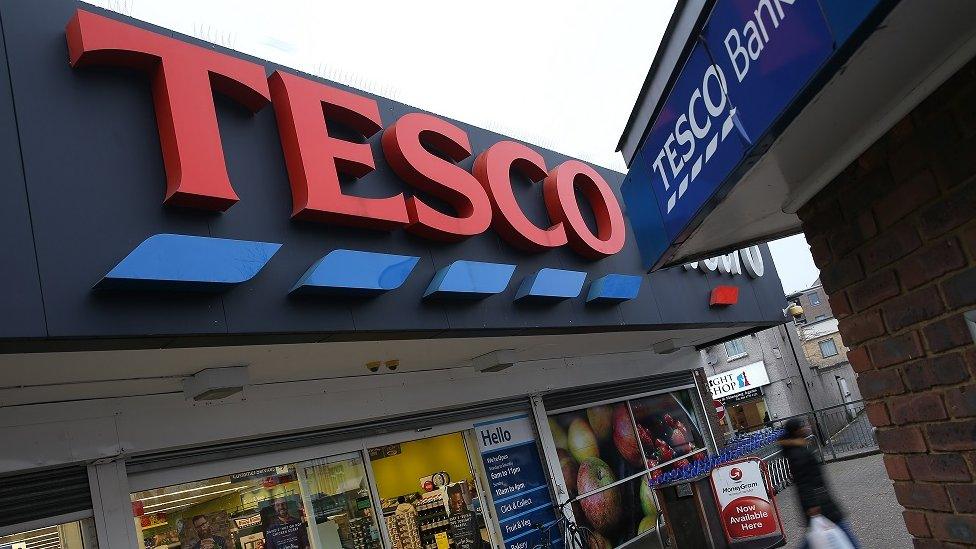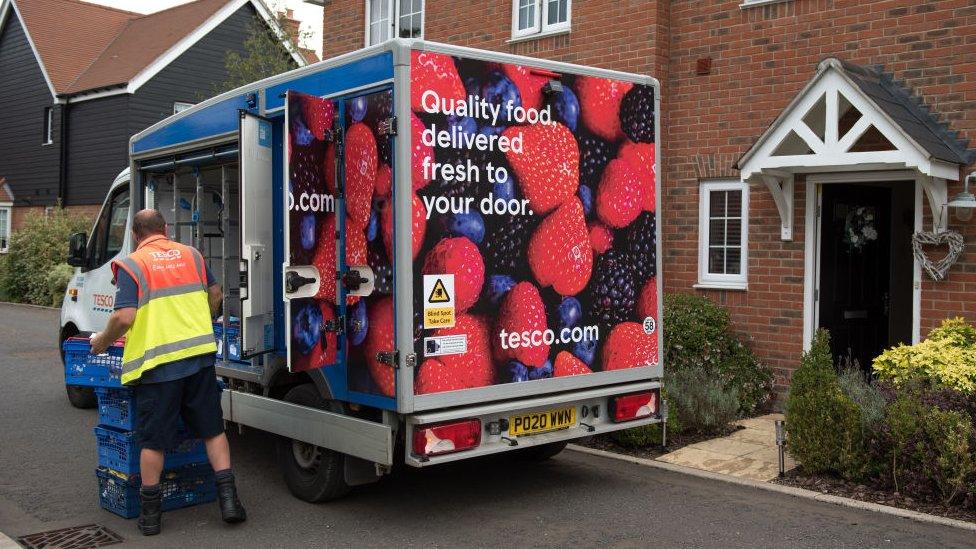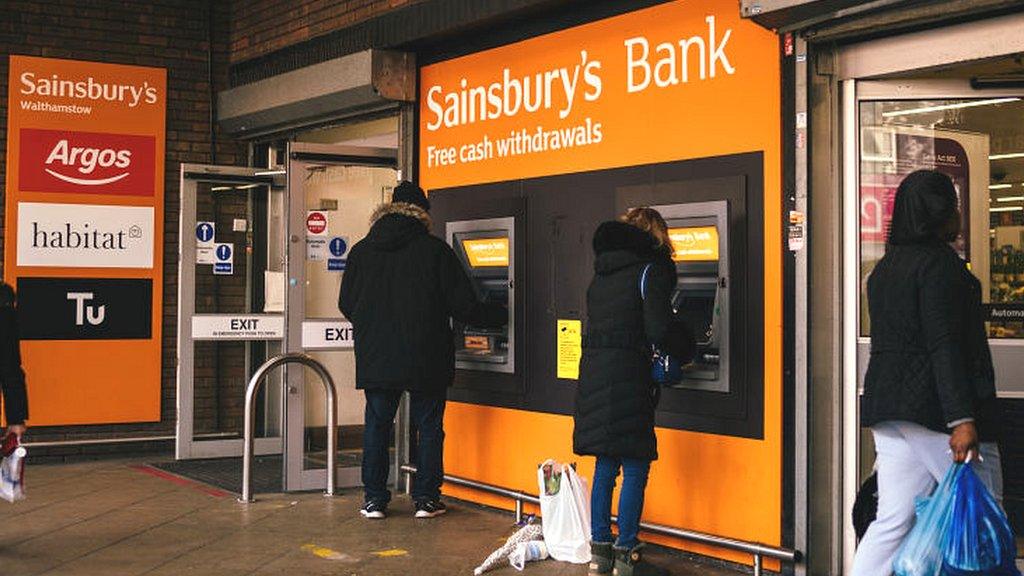Tesco Bank to be bought by Barclays in £600m deal
- Published
- comments

Barclays is buying Tesco's retail banking operations in a deal worth £600m to the supermarket giant.
Barclays is taking over Tesco Bank's credit cards, loans and savings accounts and has also agreed to market Tesco-branded banking services.
Under the deal, about 2,800 of Tesco's banking staff will transfer to Barclays.
Tesco said customers did not need to take any action and it would contact them over the coming months.
The supermarket has retained some of Tesco Bank's services, including insurance, ATMs, travel money and gift cards.
It has also agreed a partnership, initially for 10 years, under which Barclays will market and distribute credit cards, unsecured personal loans and deposits using the Tesco brand.
Shares in Tesco rose more than2% in early trading before falling back, and Barclays shares edged up slightly.
The supermarket's chief executive, Ken Murphy, said the deal would strengthen Tesco's finances and allow it to grow its core retail business, although the company said that the majority of the proceeds from the deal "will be returned to shareholders".
That will also include a £250m special dividend that Tesco Bank paid to the supermarket group in August last year.
In addition, the deal will allow Tesco to release £100m that is tied up for regulatory reasons, which will be added to the pot to return to shareholders.
Barclays said it would integrate the business into its own over time, and Tesco said the bank would work closely with the supermarket to support staff who were being transferred.
Barclays Group chief executive C.S. Venkatakrishnan said: "This strategic relationship with the UK's largest retailer will help create new distribution channels for our unsecured lending and deposit businesses.
"We are able to bring our expertise in partnership cards developed over decades in the US to enhance further the highly successful Tesco Clubcard loyalty scheme."
Tesco said the deal would offload a part of the business that needs a lot of investment, while it retains other assets that need less.
Sophie Lund-Yates, lead equity analyst at Hargreaves Lansdown, said Tesco was streamlining its assets having already parted ways with its credit cards, loans and savings operations.
"Doubling down on the core food business is a trend we're seeing many of the grocers adopt, as they reduce exposure to non-core activities and get ready to win the price wars, which have been raging since cost of living pressures soared," she said.
A decade ago, supermarkets were seen as among the most likely contenders to shake up the dominance of the High Street banks.
But their ready-made in-store branch network became far less relevant as digital technology advanced.
Instead, it was the app-based banks like Starling and Monzo which quickly became the true challengers.
Stricter regulation made financial services less appealing for the grocers too.
Tesco Bank did have current accounts, but closed them a few years ago because very few customers used them as their main account. Now - like Sainsbury's - it is getting out completely.
Last month, Sainsbury's said it was planning a "phased withdrawal" from its banking division in order to focus on its core food business.
Related topics
- Published21 January 2024

- Published18 January 2024
